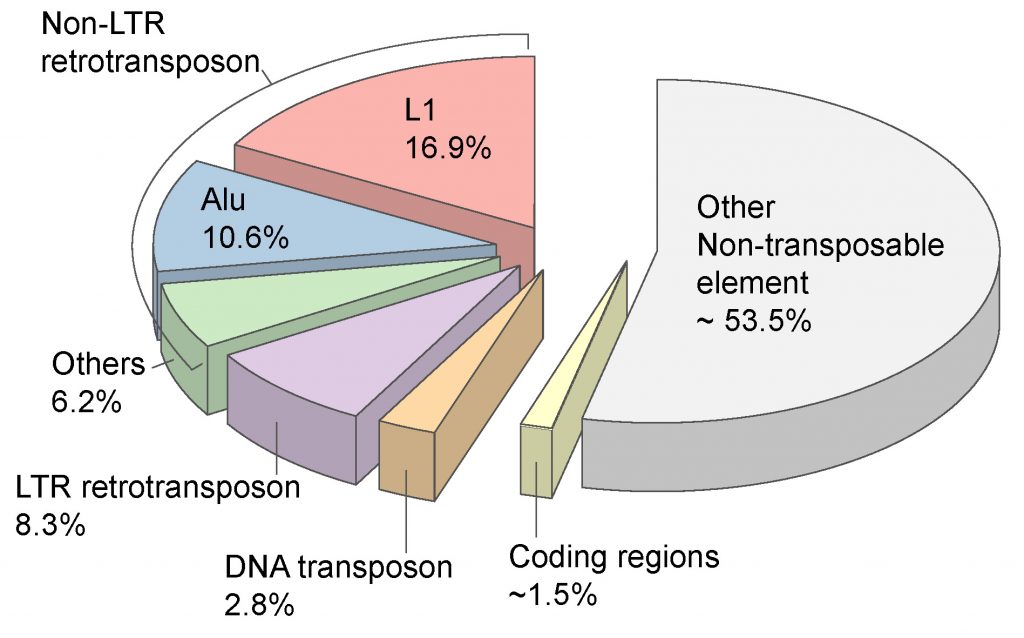RESEARCH

We are interested in the structure, function and regulation of our genome, especially the transposable elements. Transposable elements, also called mobile DNA elements or transposons, comprise nearly half of the human genome, and are still able to mobilize in modern humans. Transposons can affect neural and embryonic development, and are related with over 100 different types of diseases, including cancers and neurological disorders. However, the detailed mechanism and functions of transposons remain largely unexplored. Through ‘wet lab’ and ‘dry lab’ techniques, we are studying the mechanism of transposon regulation and the roles of transposons in development and disease.